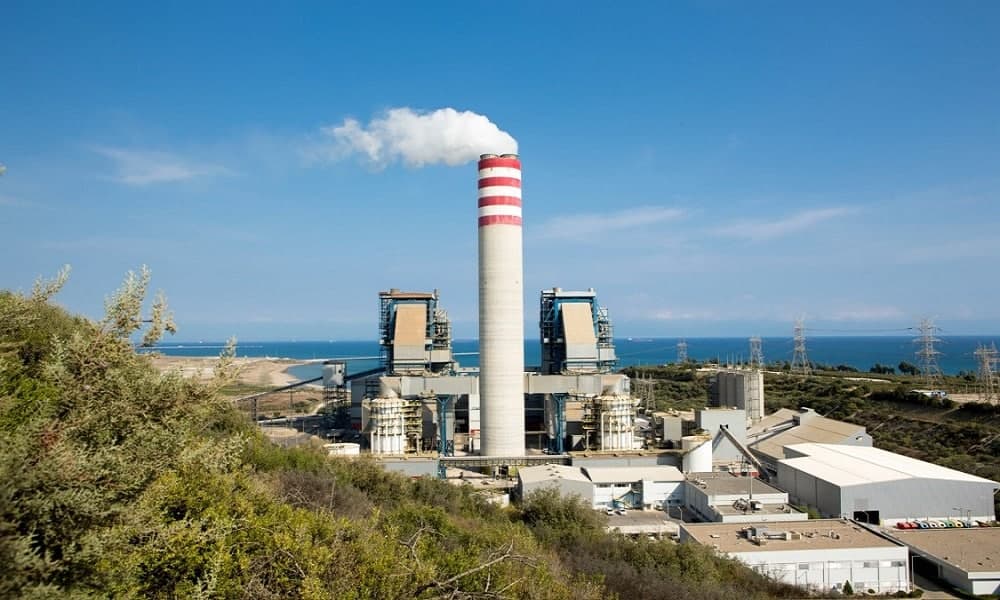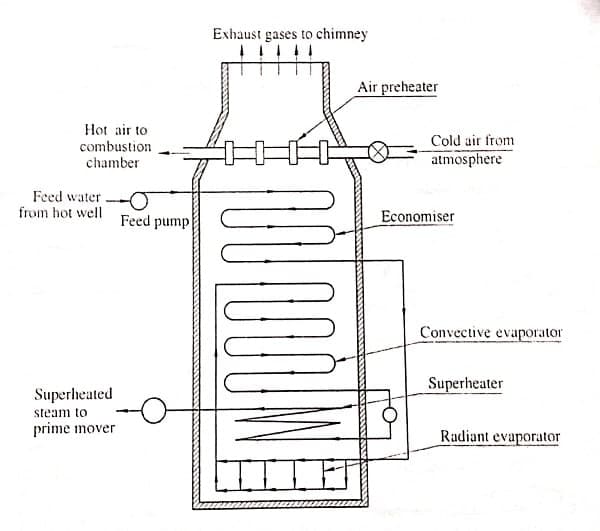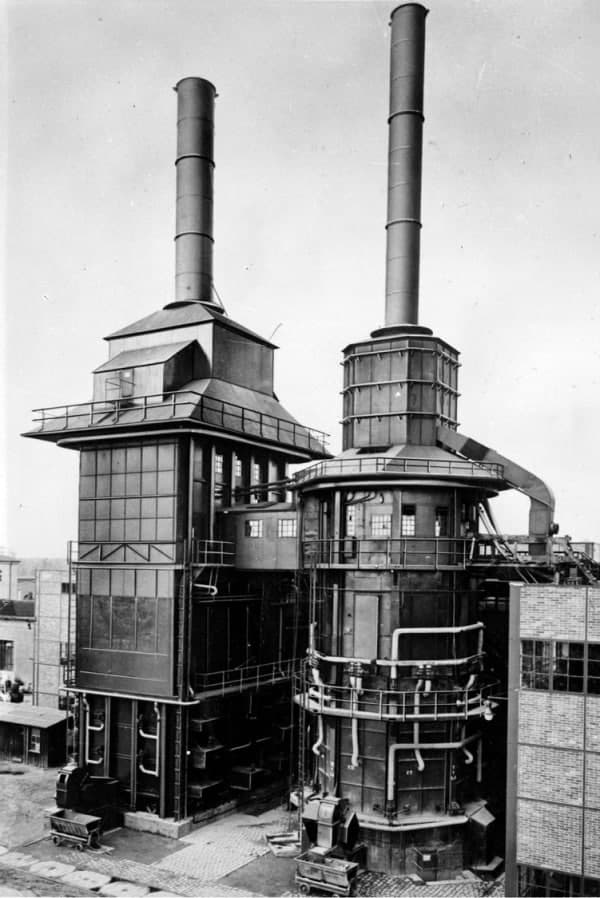Welcome to Linquip Blog. We have prepared another descriptive article about another engineering Device. Today we want to give you some information about one of the most popular boilers. The boiler that we want to talk about is the Benson boiler. Therefore firstly, we need to have a definition of what this kind of boiler is and does. In the next step, we will delve into the different components it has and elaborate on each parts’ role in the boiler. Then, we reach the working principle and in the last four sections, respectively, information such as the characteristics, advantages, disadvantages, and applications of Cochran boilers will be delivered.
On the Linquip platform, you can find all the information you need about Benson boiler equipment and devices. Our experts are ready to address any questions you might have regarding the boilers. Get started by reading Linquip’s article titled, “What is a Benson boiler?”. You will need to register as a Linquip Expert in order to use all of the Linquip features.
Have you considered Guest Posting on the Linquip platform? There is an option for guests to submit posts on Linquip.
Our team gathered all of the necessary information about this device to eliminate the need for reading diverse content on other websites. Stay with us until the end to find the answer to your question on this topic. Let us start with some basic definitions at the beginning.
What Is a Benson Boiler?
Benson Boilers are high pressure, drumless, water tube kind of boiler that make use of forced circulation. This kind of boiler has a unique characteristic of the absence of the steam separating drum. the other characteristics of this boiler are that, at the critical pressure, the steam and water coexist at the same density, and heat is zero.
Mark Benson was the scientist who invented the Benson boiler in 1922. In this boiler, as the water is compressed to supercritical pressure, no bubble is formed on the water surface. When the water enters the boiler, it suddenly converts to steam because it enters the boiler at just above the critical pressure. The critical pressure is the pressure at which the liquid and gas phase are at equibrilium. At supercritical pressure, the bubbles do not form because the density of water and steam becomes the same. As the water is compressed to supercritical pressure the latent heat of water reduces to zero.
As the latent heat of water reduces to zero the water directly changes into steam without the formation of bubbles. In this type of boiler, the air separator drum is not required to separate the air bubble from water.
What Is the Role of Each Part of Benson Boiler?
Eight main components cooperate to run the whole system. Below, we will discuss each of these parts and tell you about the role that each of these components plays in Benson Boilers.
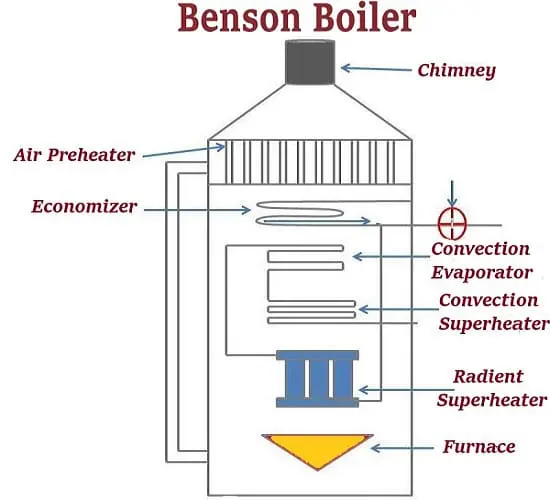
-
Furnace
It is the space, above the grate and below the boiler shell, in which the fuel is burnt. The furnace is also called a firebox.
-
Feed Pump
It is a boiler accessory needed to force the feed water at high pressure into the boiler.
-
Steam Outlet Pipe
The superheated steam is supplied to the steam turbine by a steam outlet pipe.
-
Air Pre-heater
The air preheater is a necessary accessory that develops the heat in the exhaust gases by heating the air supplied to the furnace of the boiler. The Preheated air improves the thermal efficiency of the fuel.
-
Economizer
In economizer, burning the feed water to a certain temperature. It makes the recovery of heat in the exhaust gases. Economizer improves the overall efficiency of the boiler by reducing fuel consumption.
-
Radiant Super heater
It is a super heater that heats water from radiation generated by burnt fuel. This increases the temperature to supercritical temperature.
-
Convection Super heater
The convection super heater superheats the steam to the desired temperature (about 650° C).
-
Convection Evaporator
In convection evaporator, it evaporates superheated water and transforms them into steam. It does this by the convection method of heat transfer from hot exhaust gases to water.
What Working Principle Does a Benson Boiler Work on?
The Benson boiler is a water tube boiler, which accomplishes its job on the principle of the critical pressure of water. As we mentioned before, Critical pressure is the pressure at which the water and gas states are in equilibrium.
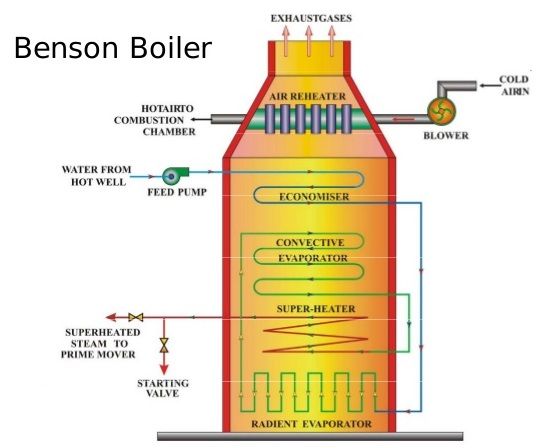
The feedwater passes through the economizer to the water-cooled walls of the furnace. The water receives heat by radiation and the temperature increases to nearly critical temperature. It then moves to the evaporator and may get superheated to some degree. Finally, it is transferred through the super heater to achieve the desired superheated steam.
How Does a Benson Boiler Work?
in the previous sections, we talked about what a Benson Boiler is and upon what principle it works, in the present section, we elaborate on the 4 steps that indicate how exactly a Benson boiler processes its job.
- Step 1: In a Benson boiler, there is no steam and water drop. It will directly convert water into steam. The blower will start working and it will blow air into the air preheater. Then, the air preheater heats the air and hot air will come out. This hot air will be used in the furnace for further process.
- Step 2: The feed pump increases the pressure of the water to the supercritical pressure. Then, the water enters into the economizer. In the economizer, the water is preheated using combustion gases to increase the efficiency of the boiler.
- Step 3: in this step, the water passes to the radiant super heater. In the radiant super heater, the water is heated using radiant heat transfer. Here heat is transferred from the combustion chamber to water and the water will partially convert into steam and partially it remains in the liquid form. Then this partial vapor and liquid will go to the convective super heater.
- Step 4: In the last step where there is the convective super heater, the water will be fully converted into vapor or steam and the superheated steam will get to the prime mover and rotate the turbine. this is how a Benson Boiler works.
What Are the Advantages and Disadvantages of Benson Boilers?
The various advantages of the boiler are listed below:
- It is a drumless boiler. So, the weight of this type of boiler is 20% less as compared with other types of boiler.
- It occupies a smaller floor area for its erection.
- Because of the use of smaller diameter tubes, the explosion hazard is almost negligible.
- It can be started very easily within 15 minutes.
- It avoids bubble formation due to the supercritical pressure of water.
- Transportation is easy.
- This boiler may achieve thermal efficiency up to 90%.
What you will read below are some of the most important disadvantages of a Benson Boiler:
- There is a possibility that tubes are overheated if the water flow is not enough.
- The formation of heavy deposits takes place on heated surfaces if impure water is used.
- You may encounter some difficulties controlling the boiler for variable loads.
What Are Benson Boilers Used For?
A Benson Boiler is used in different industries to generate steam for the production of electricity or mechanical power. The average operating pressure, temperature, and capacity of Benson boiler is 650 degree Celsius, 250 bar and 135 tones/h.
Conclusion
In this article, we tried to give you all the essential information about Benson Boilers. we brought the basic definitions and then we moved to the parts and components descriptions. In the 3rd section, we delved into the working principle that the boiler is based upon. The remaining sections were related to the characteristics, advantages, disadvantages, and also applications of Benson boilers. All we did in this article was an attempt to make it easier for you to understand how a Benson Boiler works.
If you have any experience of using this type of boiler and know more about it, we will be very glad to have your opinions in the comments on our website Linquip. Moreover, if you have any questions about this topic, you can sign up on our website and wait for our experts to answer your questions. Hope you enjoyed reading this article.
Download Benson Boiler PDF
If you wish, you can download a PDF version of this article to keep on your computer for future reference.
Read More In Linquip
- Cornish boiler 101: All you need to know about this boiler type
- Lancashire Boiler 101: A go-to guide to know Lancashire Boiler
- Locomotive Boiler 101: Your Go-To Guide for Locomotive Boilers
- Package Boiler: Your go-to guide to learn everything about them
- Cochran Boiler : All You Need to Know about Parts, Working Principle, and Features
- 5 Best Electric Boilers of 2022: A Practical Guide
- Boiler Efficiency: Definition, Formula Caculation
- The 5 Best Regular Boilers of 2022
- The 9 Best Combi Boilers of 2022
- Water Tube Boiler: What You Need to Know
- Benson Boiler: A Full Discussion on Structure, Working Principle, Pros and Cons and Applications
- Cochran Boiler : All You Need to Know about Parts, Working Principle, and Features
- Types of boilers: Which one is the best?
- How Steam Boiler System Works?
- Parts of Boiler and Their Function in the Boilers
- 5 Best Steam Boilers Worth Buying

